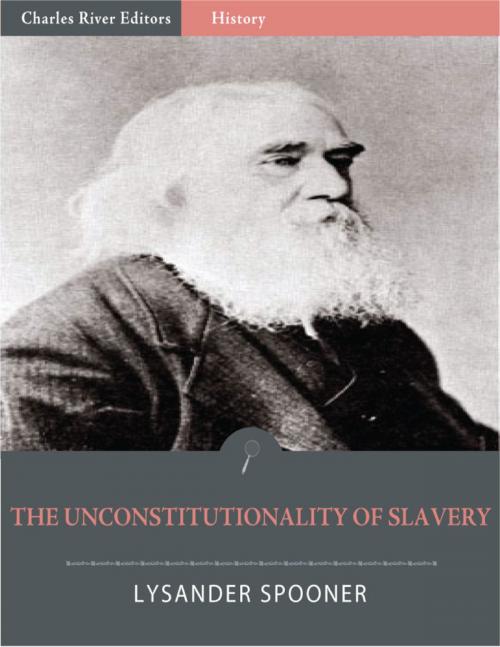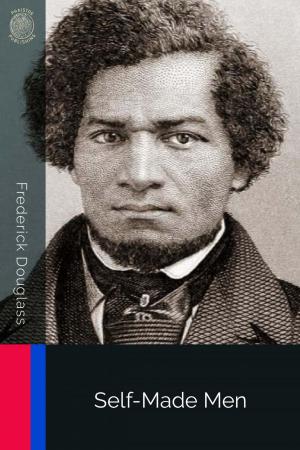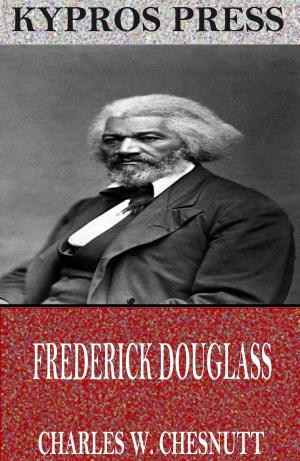The Unconstitutionality of Slavery (Illustrated Edition)
Nonfiction, Social & Cultural Studies, Social Science, Discrimination & Race Relations, History, Americas, United States, Civil War Period (1850-1877)| Author: | Lysander Spooner | ISBN: | 9781475305821 |
| Publisher: | Charles River Editors | Publication: | April 14, 2012 |
| Imprint: | Language: | English |
| Author: | Lysander Spooner |
| ISBN: | 9781475305821 |
| Publisher: | Charles River Editors |
| Publication: | April 14, 2012 |
| Imprint: | |
| Language: | English |
Slavery existed long before the United States of America was founded, but so did opposition to slavery. Both flourished after the founding of the country, and the anti-slavery movement was known as abolition. For many abolitionists, slavery was the preeminent moral issue of the day, and their opposition to slavery was rooted in deeply held religious beliefs. Quakers formed a significant part of the abolitionist movement in colonial times, as did certain Founding Fathers like Benjamin Franklin. Many other prominent opponents of slavery based their opposition in Enlightenment ideals and natural law. American abolitionists during the Constitutional Convention worked against the three-fifths compromise, and also attempted to get the Constitution to ban the Atlantic slave trade. Although the three-fifths compromise became a part of the Constitution, abolitionists managed to persuade the convention to allow Congress to ban the Atlantic slave trade after 1808. Other abolitionists tried to help slaves directly, by helping them escape to the North. After the Fugitive Slave Act mandated the return of escaped slaves, abolitionists helped escaped slaves travel to Canada. In addition, many northern politicians opposed restricting slavery as either practically impossible or dangerous. In the years after the Atlantic slave trade was banned in 1808, abolitionists focused their political efforts on preventing the spread of slavery to the new territory of the Louisiana Purchase. Pro-slavery politicians likewise attempted to spread slavery to new states. Every time a new state formed from Louisiana territory was to enter the Union, intense political wrangling took place over whether the new state would be slave or free. The political wrangling often broke into violence. By the middle of the 19th century, slavery had created a fevered pitch in the politics of the country, as abolitionists and slavery proponents fought a war of words and actual wars in Kansas and Nebraska. While the South postured for secession, abolitionists, both white and black, created a stronger movement in the Northeast in places like Boston. Ultimately the issue would have to be settled via civil war. Spooner published his most famous work in 1845, and it immediately ignited controversy among the various factions of the abolition movement. He disputed the common perception that the Constitution supported the institution of slavery by using a complicated system of semantic, legal, and natural law arguments to demonstrate that several clauses in the document actually prohibited the establishment of slavery by the states. Spooner even went so far as to claim that those clauses cited by the Southern politicians justifying slavery actually did not. This edition of Lysander Spooners The Unconstitutionality of Slavery is specially formatted with a Table of Contents and pictures of famous abolitionists like Frederick Douglass, Sojourner Truth, Harriet Tubman, Harriet Beecher Stowe, and more.
Slavery existed long before the United States of America was founded, but so did opposition to slavery. Both flourished after the founding of the country, and the anti-slavery movement was known as abolition. For many abolitionists, slavery was the preeminent moral issue of the day, and their opposition to slavery was rooted in deeply held religious beliefs. Quakers formed a significant part of the abolitionist movement in colonial times, as did certain Founding Fathers like Benjamin Franklin. Many other prominent opponents of slavery based their opposition in Enlightenment ideals and natural law. American abolitionists during the Constitutional Convention worked against the three-fifths compromise, and also attempted to get the Constitution to ban the Atlantic slave trade. Although the three-fifths compromise became a part of the Constitution, abolitionists managed to persuade the convention to allow Congress to ban the Atlantic slave trade after 1808. Other abolitionists tried to help slaves directly, by helping them escape to the North. After the Fugitive Slave Act mandated the return of escaped slaves, abolitionists helped escaped slaves travel to Canada. In addition, many northern politicians opposed restricting slavery as either practically impossible or dangerous. In the years after the Atlantic slave trade was banned in 1808, abolitionists focused their political efforts on preventing the spread of slavery to the new territory of the Louisiana Purchase. Pro-slavery politicians likewise attempted to spread slavery to new states. Every time a new state formed from Louisiana territory was to enter the Union, intense political wrangling took place over whether the new state would be slave or free. The political wrangling often broke into violence. By the middle of the 19th century, slavery had created a fevered pitch in the politics of the country, as abolitionists and slavery proponents fought a war of words and actual wars in Kansas and Nebraska. While the South postured for secession, abolitionists, both white and black, created a stronger movement in the Northeast in places like Boston. Ultimately the issue would have to be settled via civil war. Spooner published his most famous work in 1845, and it immediately ignited controversy among the various factions of the abolition movement. He disputed the common perception that the Constitution supported the institution of slavery by using a complicated system of semantic, legal, and natural law arguments to demonstrate that several clauses in the document actually prohibited the establishment of slavery by the states. Spooner even went so far as to claim that those clauses cited by the Southern politicians justifying slavery actually did not. This edition of Lysander Spooners The Unconstitutionality of Slavery is specially formatted with a Table of Contents and pictures of famous abolitionists like Frederick Douglass, Sojourner Truth, Harriet Tubman, Harriet Beecher Stowe, and more.















